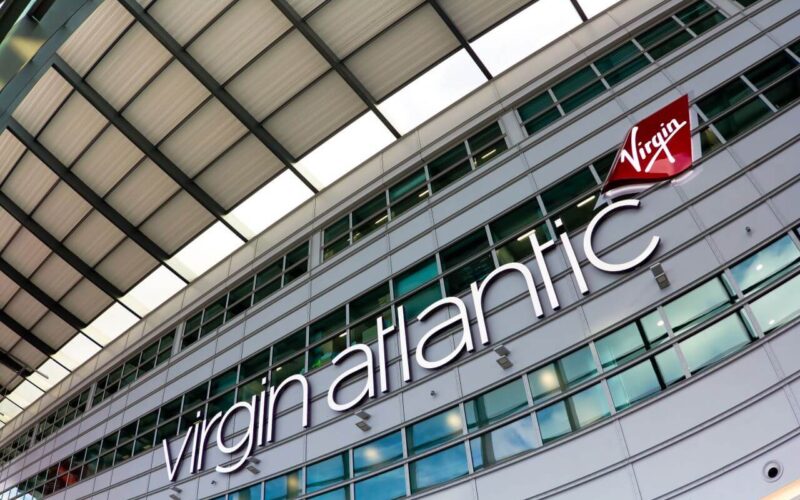Virgin Group founder Richard Branson has reportedly backtracked on plans to sell a 31% stake of Virgin Atlantic to Air France-KLM. Branson will retain full control of the airline after scrapping the deal, which would have seen the Franco-Dutch group acquire a 51% majority stake in the carrier.
Virgin Group had planned to sell a 31% stake of the British carrier to Air France-KLM for £220 million ($286 million) under an agreement reached back in 2017. But the deal has now been axed – Virgin Atlantic’s founder Branson and Air France-KLM have agreed that the Virgin Group will keep its controlling stake in the carrier after all, while Delta Air Lines will retain its 49% share.
Virgin Atlantic has been in partnership with Delta since 2012 when the U.S. carrier bought its 49% stake in the British carrier. The goal of the collaboration was for the two airlines to be able to compete better against British Airways’ dominance on the trans-Atlantic flight market. Delta had already established a similar separate trans-Atlantic partnership with Air France-KLM in 2009 and currently owns an 8.8% stake in the Franco-Dutch airline group.
For some time now, an extended alliance between all three parties – Virgin Atlantic, Delta and Air France-KLM – has also been in the making. Following a lengthy struggle with various competition authorities, in August 2019 the U.S. Department of Transportation (DoT) tentatively approved the joint venture. Final approval for antitrust immunity (ATI) was granted by the DoT on November 21, 2019, thereby allowing the carriers to combine their two separate agreements with Delta into a single joint venture.
Despite Branson’s change of heart regarding the stake sale of Virgin Atlantic, the alliance between the carriers will go ahead. “We have agreed (subject to contract) with our new joint venture partners, that our family will continue to hold the 51% of Virgin Atlantic shares we own,” Branson said in a statement, as quoted by several publications. “We’ll also continue to work extremely closely with our partners investing together in a thriving airline and holiday company.”
In a separate statement on December 4, 2019, the Franco-Dutch airline group said it was not necessary to buy a stake in Virgin Atlantic to expand the joint venture. “Air France-KLM and Virgin (VAH) have considered that Air France-KLM’s acquisition of a stake in Virgin Atlantic is no longer necessary and are negotiating an agreement whereby Air France-KLM will not acquire a stake in Virgin Atlantic, without any impact on Air France-KLM’s position in the commercial Delta -Virgin Atlantic- Air France-KLM joint venture,” the official press release reads.
An interesting aspect has been the involvement of Alitalia, which along with Delta and Air France-KLM is part of the SkyTeam alliance. A previous trans-Atlantic partnership also included the Italian carrier, but in July 2018, Delta, Air France-KLM and Virgin Atlantic filed an amended joint venture agreement excluding Alitalia. The final approval of the joint venture in November saw the DoT cut financially struggling Alitalia out of the deal, giving it and Delta six months to reach a commercial agreement if it is to be included in the extended joint venture.
Meanwhile, both Virgin Atlantic and Air France-KLM stress the importance of the expanded trans-Atlantic partnership, expected to be launched “in the coming weeks”. In his statement, Branson called the deal an “essential part” of Virgin Atlantic’s “future and long-term success”. For Air France-KLM, the partnership is regarded “key to strengthening the Group’s leadership position between Europe and North America,” as stated in the press release.
But above all, it is another win for Branson. In July 2019, the British regional carrier Flybe was purchased by Connect Airways, a Virgin Atlantic-led consortium that includes Stobart Group and Cyrus Capital. What was formerly Flybe is set to be rebranded as Virgin Connect. For Virgin Atlantic, securing Flybe deal was crucial, as the carrier aims to increase its international connectivity from London Heathrow (LHR) by 400% and, once again, try to challenge the International Airlines Group (IAG) (IAG) and its subsidiary British Airways’ monopoly in the UK’s international long-haul market.

